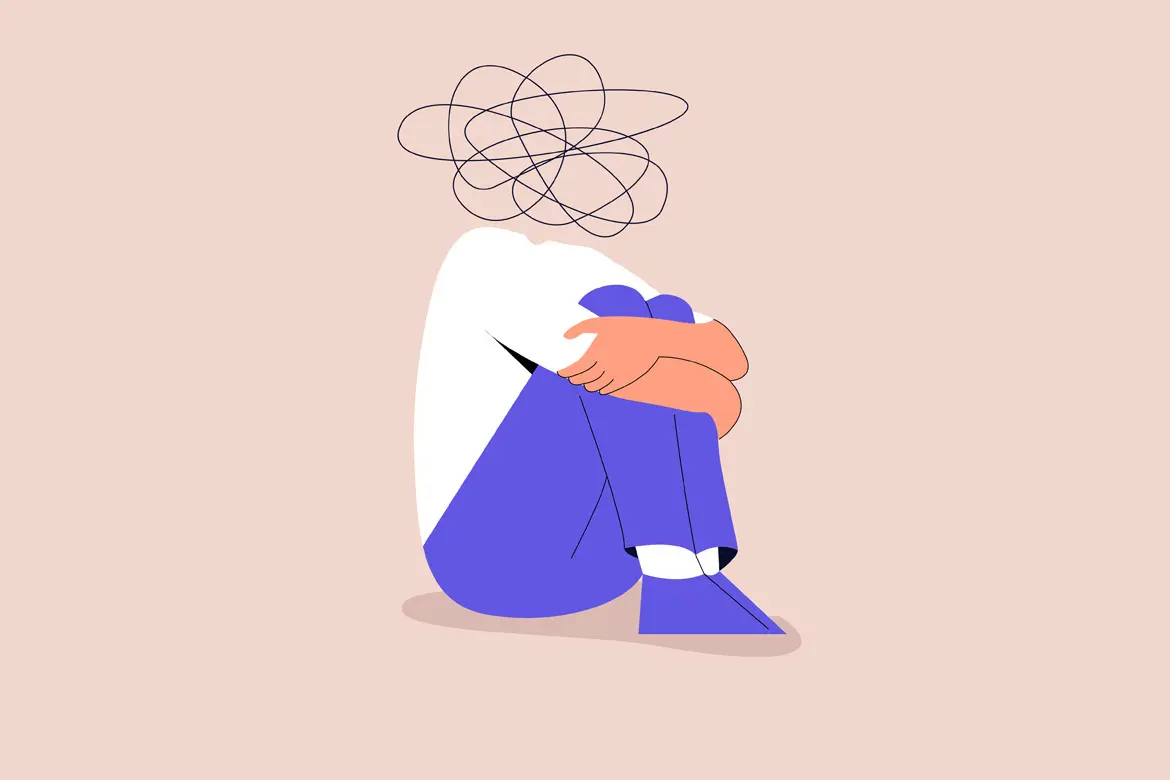Kristine Xie
Family Physician


Source: Getty Images and Shutterstock
Family Physician
According to the World Economic Forum, anxiety is the most prevalent mental health issue globally. The figures are sobering – it's estimated that 275 million people worldwide suffer from anxiety disorders. COVID-19 has only served to exacerbate the problem, causing anxiety and depression to have a 25% increase in prevalence worldwide, according to the World Health Organization.
Chances are, you have faced (the feeling of) anxiety at some point in your life. Tension, worried thoughts, an increased heart rate, and chest pains are some of the feelings associated with anxiety. If only experienced occasionally, anxiety is considered normal.
Anxiety is an appropriate reaction to danger, and it can activate your body's fight-or-flight response that gets triggered when you feel threatened, are under pressure, or are facing a stressful situation (e.g. loss of a job, sitting for an examination, meeting someone for the first time).
This isn't necessarily a bad thing, as a certain amount of anxiety can be helpful. It can allow you to stay focused and alert, get you to work on time, motivate you to study diligently for exams, and even keep you out of dangerous situations.
Anxiety becomes a problem when it crosses from being an occasional emotion that someone feels to become a likely anxiety disorder. The intensity of symptoms as well as an individual's ability to cope determine the difference between daily stresses or temporary anxiety from anxiety disorders.
Anxiety disorders are a group of related conditions rather than a single disorder, which means that symptoms may vary widely between individuals. It's possible to have more than one anxiety disorder, with a common thread running through them – fear or worry disproportionate to the situation at hand.
In an anxiety disorder, anxiety no longer serves as a healthy emotion but becomes overwhelming to deal with. This can sometimes lead to constant fear or worry, causing the individual to overreact or react impulsively to situations. This may interfere with their relationships and daily life in a variety of ways. Someone suffering from an anxiety disorder might even avoid certain situations and/or places, depending on what triggers their feelings of anxiety.
In addition, people with anxiety disorders usually have recurring intrusive thoughts or concerns that can affect their concentration and sleep. They may also have physical symptoms such as sweating, breathlessness, shaking and chest pain.
Often, there is a mix of symptoms in those suffering from an anxiety disorder, and they can show up as young as childhood and continue long into adulthood if left untreated.
Symptoms of anxiety disorders vary and include:
There are many types of anxiety disorders, and some may experience more than one at a time. A few common ones include:
Those suffering from anxiety disorders experience prolonged periods of stress. This results in their fight-or-flight response staying activated, causing cortisol, the primary stress hormone, to be consistently produced. Cortisol increases sugar in the bloodstream, and over time, this can lead to diabetes. Anxiety also leads to elevated blood pressure, which can result in coronary heart disease.
Prolonged anxiety can also cause someone to make poor lifestyle choices. For one, stress can lead someone to seek comfort in food, resulting in an increased intake of foods high in sugar and fat, leading to weight gain, diabetes, and obesity. In extreme cases, someone might even turn to drugs, alcohol, and smoking, which ironically increase the feelings of anxiety once their effects wear off, leading to addiction.
Overall, someone who suffers from an anxiety disorder will experience a drop in the quality of their life. Anxiety can feel like an unending cycle of fear or helplessness. Usual daily activities and even responsibilities such as work or school can be severely affected by anxiety. This can lead to other mental health issues such as depression and, in some cases, suicidal thinking.
If you or a loved one is suffering from anxiety, take comfort in knowing that there is help available.
People who go through anxiety disorders can sometimes feel alone. They may be unwilling to speak about their issues for fear of judgement from others. The stigma associated with anxiety disorders, and the social isolation resulting from COVID-19 restrictions, have caused reduced opportunities for those suffering to speak up.
The first step lies in realising you need help. There is the self-help route, and there is the professional help route. The path you choose is up to you, and you can even choose a combination of the two routes.
If you feel like you might want to seek professional help, consider visiting a general practitioner (GP), and they will be able to guide you in the right direction.
While anxiety can make you feel isolated and alone in your struggle, remember that it's not true. There are a variety of avenues available for you to seek help and treatment, and the first step is for you to reach out for help. If you are concerned, you are encouraged to visit your doctor as soon as possible.
If necessary, anxiety can be overcome using professional help techniques, such as therapy and medication. Coupled with love, support, and other self-help techniques, you will eventually overcome anxiety and live an abundant life. Remember, you are not alone.
The Chronic Disease Management Programme (CDMP) was first introduced in October 2006 and now covers 20 conditions, including anxiety. With CDMP, the cost of managing chronic conditions is made easier and reduces out-of-pocket healthcare cost for people seeking treatment.
Speak to your doctor and locate the nearest Parkway Shenton clinic to you here.